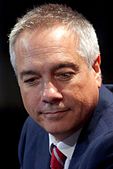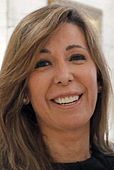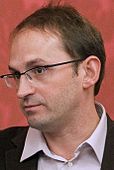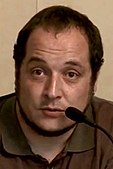
Back Eleccions al Parlament de Catalunya de 2012 Catalan Parlamentswahl in Katalonien 2012 German Elecciones al Parlamento de Cataluña de 2012 Spanish 2012ko Kataluniako Parlamentuko hauteskundeak Basque Élections au Parlement de Catalogne de 2012 French Eleccións ao Parlamento de Cataluña de 2012 Galician Elezioni parlamentari in Catalogna del 2012 Italian Eleições regionais na Catalunha em 2012 Portuguese Alegeri parlamentare regionale în Catalonia, 2012 Romanian Парламентские выборы в Каталонии (2012) Russian
| |||||||||||||||||||||||||||||||||||||||||||||||||||||||||||||||||||||||||||||||||||||||||||||||||||||||||||||||||||||||||||||||||||||||||||||
All 135 seats in the Parliament of Catalonia 68 seats needed for a majority | |||||||||||||||||||||||||||||||||||||||||||||||||||||||||||||||||||||||||||||||||||||||||||||||||||||||||||||||||||||||||||||||||||||||||||||
|---|---|---|---|---|---|---|---|---|---|---|---|---|---|---|---|---|---|---|---|---|---|---|---|---|---|---|---|---|---|---|---|---|---|---|---|---|---|---|---|---|---|---|---|---|---|---|---|---|---|---|---|---|---|---|---|---|---|---|---|---|---|---|---|---|---|---|---|---|---|---|---|---|---|---|---|---|---|---|---|---|---|---|---|---|---|---|---|---|---|---|---|---|---|---|---|---|---|---|---|---|---|---|---|---|---|---|---|---|---|---|---|---|---|---|---|---|---|---|---|---|---|---|---|---|---|---|---|---|---|---|---|---|---|---|---|---|---|---|---|---|---|
| Opinion polls | |||||||||||||||||||||||||||||||||||||||||||||||||||||||||||||||||||||||||||||||||||||||||||||||||||||||||||||||||||||||||||||||||||||||||||||
| Registered | 5,413,868 | ||||||||||||||||||||||||||||||||||||||||||||||||||||||||||||||||||||||||||||||||||||||||||||||||||||||||||||||||||||||||||||||||||||||||||||
| Turnout | 3,668,310 (67.8%) | ||||||||||||||||||||||||||||||||||||||||||||||||||||||||||||||||||||||||||||||||||||||||||||||||||||||||||||||||||||||||||||||||||||||||||||
| |||||||||||||||||||||||||||||||||||||||||||||||||||||||||||||||||||||||||||||||||||||||||||||||||||||||||||||||||||||||||||||||||||||||||||||
 Election result by constituency | |||||||||||||||||||||||||||||||||||||||||||||||||||||||||||||||||||||||||||||||||||||||||||||||||||||||||||||||||||||||||||||||||||||||||||||
| |||||||||||||||||||||||||||||||||||||||||||||||||||||||||||||||||||||||||||||||||||||||||||||||||||||||||||||||||||||||||||||||||||||||||||||
The 2012 Catalan regional election was held on Sunday, 25 November 2012, to elect the 10th Parliament of the autonomous community of Catalonia. All 135 seats in the Parliament were up for election. It was a snap election, announced on 25 September by President Artur Mas following the pro-independence demonstration in Barcelona on 11 September—the National Day of Catalonia—and the failed talks between President Mas and Prime Minister Mariano Rajoy to give greater fiscal autonomy to Catalonia.[1][2]
Despite Artur Mas campaigning to win an absolute majority of seats, Convergence and Union (CiU) suffered an electoral setback which had gone largely unnoticed by opinion polls. The Socialists' Party of Catalonia (PSC) also fared poorly, obtaining fewer seats than pro-independence Republican Left of Catalonia (ERC) and ending up as the third parliamentary force overall. In turn, ERC regained much of the strength it had loss in the 2010 election and became the main parliamentary opposition party for the first time. The People's Party (PP) and Citizens (C's) benefitted from the electoral polarization between the pro-independence and anti-independence blocs, scoring their best results until then, with 19 and 9 seats, respectively. The Popular Unity Candidacy (CUP) also entered the Parliament for the first time.[3]
- ^ "Mas adelanta elecciones al 25-N "para abrir una nueva etapa"". El Periódico de Catalunya (in Spanish). 25 September 2012. Retrieved 6 December 2017.
- ^ "Spain's Catalonia region to hold early elections on Nov 25". Reuters. 25 September 2012. Retrieved 6 December 2017.
- ^ "Elecciones catalanas 2012: Batacazo de Artur Mas al perder CiU 12 diputados y quedarse muy lejos de la absoluta". La Voz de Galicia (in Spanish). 26 November 2012. Retrieved 5 February 2020.






